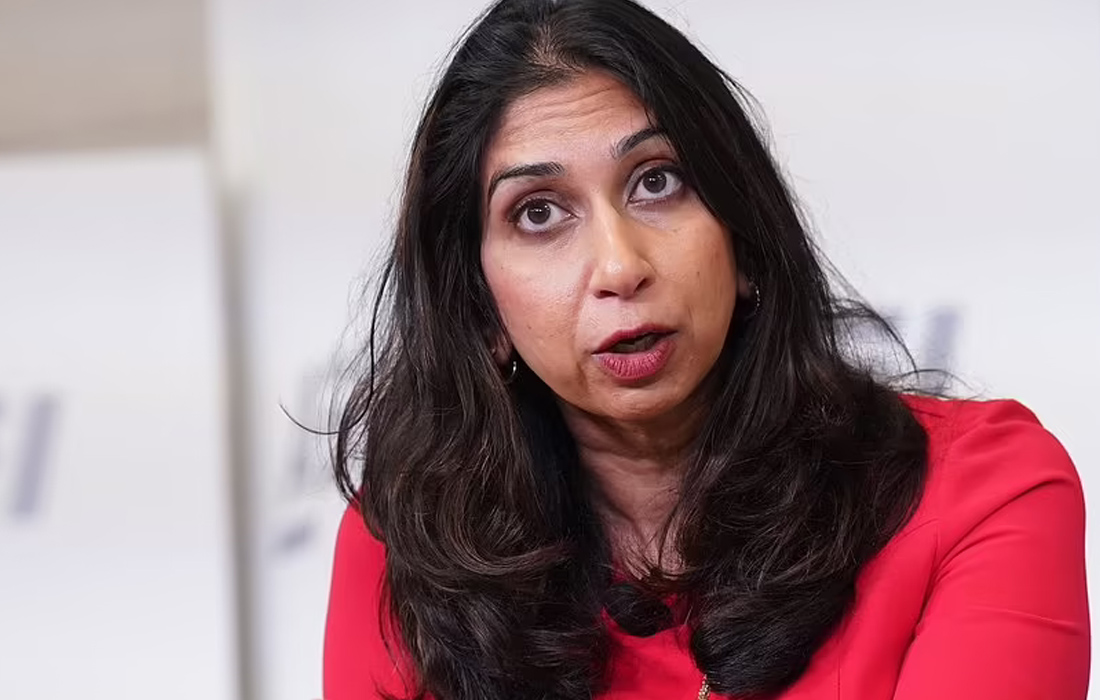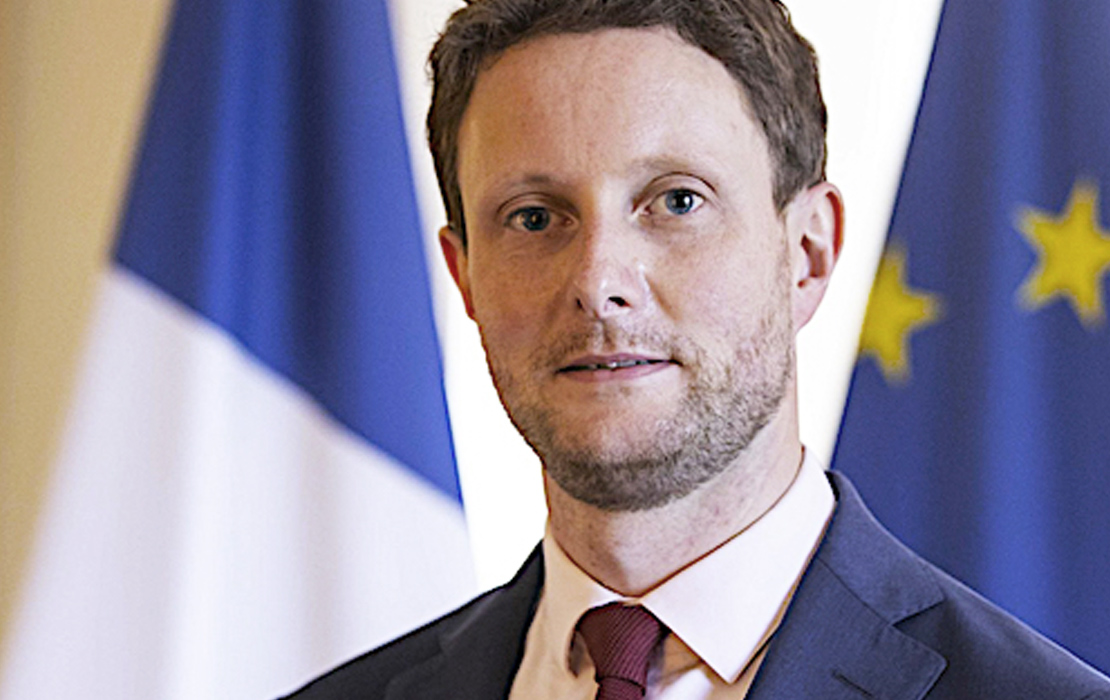>> High court orders surrogate mother to hand baby to gay couple
[spacer]
Une mère porteuse se serait rétractée après «un accord» de gestation pour autrui. La justice l’oblige à laisser le bébé à son père biologique et à son compagnon. Des avocats britanniques réclament la création de véritables contrats de travail pour éviter les conflits.
La Haute cour de justice du Royaume-Uni a ordonné à une mère porteuse de donner son enfant à un couple gay. Une première dans ce pays qui a légalisé la gestation pour autrui (GPA) en 1985 et où le mariage homosexuel est autorisé depuis 2012. La petite fille âgée de 15 mois devra aller vivre avec son père biologique et son compagnon. Pour justifier sa décision, la Cour a argué que la mère avait été «fourbe et manipulatrice». Avant de tomber enceinte, elle aurait établi un accord informel avec le couple selon lequel elle laisserait les deux hommes s’occuper de l’enfant. Le père, qui a donné le sperme, a affirmé que la mère était d’accord pour servir de mère porteuse au couple. Cependant, après avoir donné naissance à une fille, elle a décidé de la garder.
Manque d’un cadre précis
La «surrogacy» (maternité de substitution) est autorisée depuis plus de trente ans au Royaume-Uni. Toute «rémunération» est interdite même si les «dédommagements», à hauteur de 20.000 euros, peuvent être remboursés par les commanditaires pour payer les frais de la grossesse.
Mais le flou juridique concernant les «accords» entre les parties entraîne souvent des conflits. Dans cette affaire, la juge de la Haute Cour a ainsi affirmé que «le manque d’un cadre précis pour ce genre d’arrangement a inévitablement conduit à une augmentation de cas devant la justice».
L’affaire a relancé le débat sur la GPA outre-Manche. De nombreux avocats demandent que les règles encadrant la gestation pour autrui soient revues, afin que de véritables contrats de travail soient mis en place, qui empêcheraient toute ambiguïté ou rétractation malencontreuse.
Le leader des Libéraux-démocrates Nick Clegg a suggéré récemment que les couples de même sexe devraient être autorisés à payer pour avoir recours à des mères porteuses. Certaines associations réclament le droit de commissionner les agences qui permettraient de mettre en contact des mères désireuses de porter un enfant avec les couples en demande. Aux Etats-Unis, ce genre d’agences peuvent recevoir jusqu’à 150.000 dollars par bébé.
Sujet à controverse et formellement interdite en France, la pratique de la GPA est de plus en plus courante au Royaume-Uni où de nombreux couples y ont recours. Exemple emblématique, Elton John et son mari y ont eu recours pour obtenir leurs deux fils. En mars dernier, un tribunal avait autorisé un Anglais homosexuel de 24 ans à adopter l’enfant que sa propre mère avait porté pour lui. Devant le scandale suscité par cette GPA peu commune, le jeune homme s’était justifié en affirmant: «Je crois que quiconque peut s’occuper d’un enfant a le droit d’en avoir un. Nous sommes supposés vivre dans un monde où tout le monde a le droit aux mêmes chances.»
Par Eugénie Bastié
>> Lawyers are calling for rules surrounding surrogacy to be tightened up after a woman who had a child with a gay couple then refused them access was ordered to hand over the baby.
A judge ruled in favour of the two men after finding that the mother had agreed to be a surrogate before conceiving and deciding it was in the best interests of the girl that she grow up with her father and his partner.
The case has thrown open the debate around surrogacy in the UK, where a lack of regulation means that informal arrangements between parties can easily fall apart, leaving courts with complicated and highly emotive situations to resolve.
Cara Nuttall, a family law specialist at Slater and Gordon, called the current legal situation “a bit of a mess”, adding that lack of clarity meant often people entered into surrogacy arrangements unaware of the legal implications.
“These arrangements, when they go wrong, tend to go spectacularly wrong,” she said. “In these kinds of arrangements there isn’t a halfway house; the child is either your child or not and obviously it’s also emotive as well because people believe they are fighting for their child.”
Peter Morris, a partner and family law specialist at Irwin Mitchell, said: “The key issue raised by this case is that the UK lacks a clear, comprehensive legal framework to cover the concept of surrogacy.
“A number of countries including the US have a proper process that those involved in surrogacy must undertake. Such systems would see all of those involved make a clear agreement regarding the future of the child and who will care for them, as well as in some instances have psychological screening. The process is legally regulated which provides greater certainty for the surrogate, the intended parents and ultimately the child.
Advertisement
“The UK, however, does not have such an approach in place, meaning that although the vast majority of surrogacy arrangements conclude amicably, if a surrogate mother was to change her mind the only recourse for the other parties involved would be to head to the courts.”
In the latest case, the woman, identified only as S, said she had entered into an artificial conception agreement with the man, which would see her acting as the “main parent and carer”. That was disputed by the child’s genetic father, H, who said the agreement was that he and his male partner, B, would “co-parent” the girl, with the woman continuing to “play a role”.
Following hearings in London and Birmingham, Russell agreed with H. “[The girl] was not conceived by two people in a sexual relationship,” said the judge. “The pregnancy was contrived with the aim of a same-sex couple having a child to form a family assisted by a friend; this was ostensibly acquiesced to by all parties at the time the agreement was entered into and conception took place.
“Therefore [the girl] living with [the two men] and spending time with [the woman] from time to time fortunately coincides with the reality of her conception and accords with [the girl’s] identity and place within her family.”
According to UK law, any form of commercial surrogacy is banned. The woman who gives birth is the legal mother and her husband, if she is married, usually becomes the legal father. That remains the case even if donor eggs and sperm are used.
To gain legal parenthood of a child born to a surrogate, the commissioning couple must apply to the courts for a parental order within six months of the birth. For this to be granted they must meet a set of criteria, foremost among which is the consent of the woman who gave birth to the child.
Even then, the court retains the discretion as to whether or not to make the order, based on whether it is in the child’s interests. In the case of a dispute between the surrogate and the commissioning couple, the court has to decide where the child will live and how parental responsibility will be allocated. Any surrogacy agreement made between them beforehand is not legally enforceable, but can be taken in evidence by a judge.
“There’s nothing groundbreaking in this [case], but what it does stress is that the court will look at what the parents intended at the time,” Nuttall said. “What comes across is that the court has to look at what’s in the child’s best interests. It’s apparent from the court in this case that the mother was exhibiting real hostility towards the fathers.”
In her ruling, Russell criticised S for disrupting the men’s evidence during hearings, using offensive language and insinuating that gay men in relationships were promiscuous and sexually disloyal to each other.
“[The woman] disrupted the [men’s] evidence,” said the judge. “For the first three days of the hearing in London and particularly while [the men] were giving their evidence the flow of the proceedings had to be interrupted on numerous occasions for [her] to express breast milk.
“When the case was heard in Birmingham and when [the woman] was giving her evidence, the interruptions were noticeably fewer, shorter and took place when the court was adjourned.”
The judge added: “Throughout the proceedings [the woman] has quite deliberately and explicitly sought to portray herself as a victim. Indeed, she describes herself as such and claims that she is discriminated against as a mother and, more particularly, as a breastfeeding mother.”
She continued: “At the same time [the woman] used offensive language including stereotypical images and descriptions of gay men to portray [the men]. For example, she repeatedly insinuated that gay men in same-sex relationships behave in a sexually disinhibited manner and are habitually sexually disloyal to each other.
“[The woman] has continually described the relationship between [the men] as ‘on-off’ and likely to be short-lived. There was no evidence at all before the court to support this; indeed the two men were, and are, clearly devoted to each other.”
Carmel Brown, family specialist solicitor at law firm Thomas Eggar LLP, said the judgment was the same as would be expected if the couple seeking a child were of opposite sex. “Accordingly the ruling is in line with the changes to the law in relation to same sex marriage.”
Brown added: “Although surrogacy agreements are not binding in the courts of England and Wales, the courts have a wide discretion to act in the best interests of the child and they have shown to be sympathetic to intended parents applying to uphold a surrogacy arrangement.
“However, there are no guarantees. A clearer structure for surrogacy would assist all parties entering a potential arrangement, regardless of whether the intended parents are same sex or opposite sex.”
The judge made an order barring the woman removing the girl from the legal jurisdiction of England and Wales without the consent of the men. She also said nothing could be reported to identify the child, who recently turned one.

















